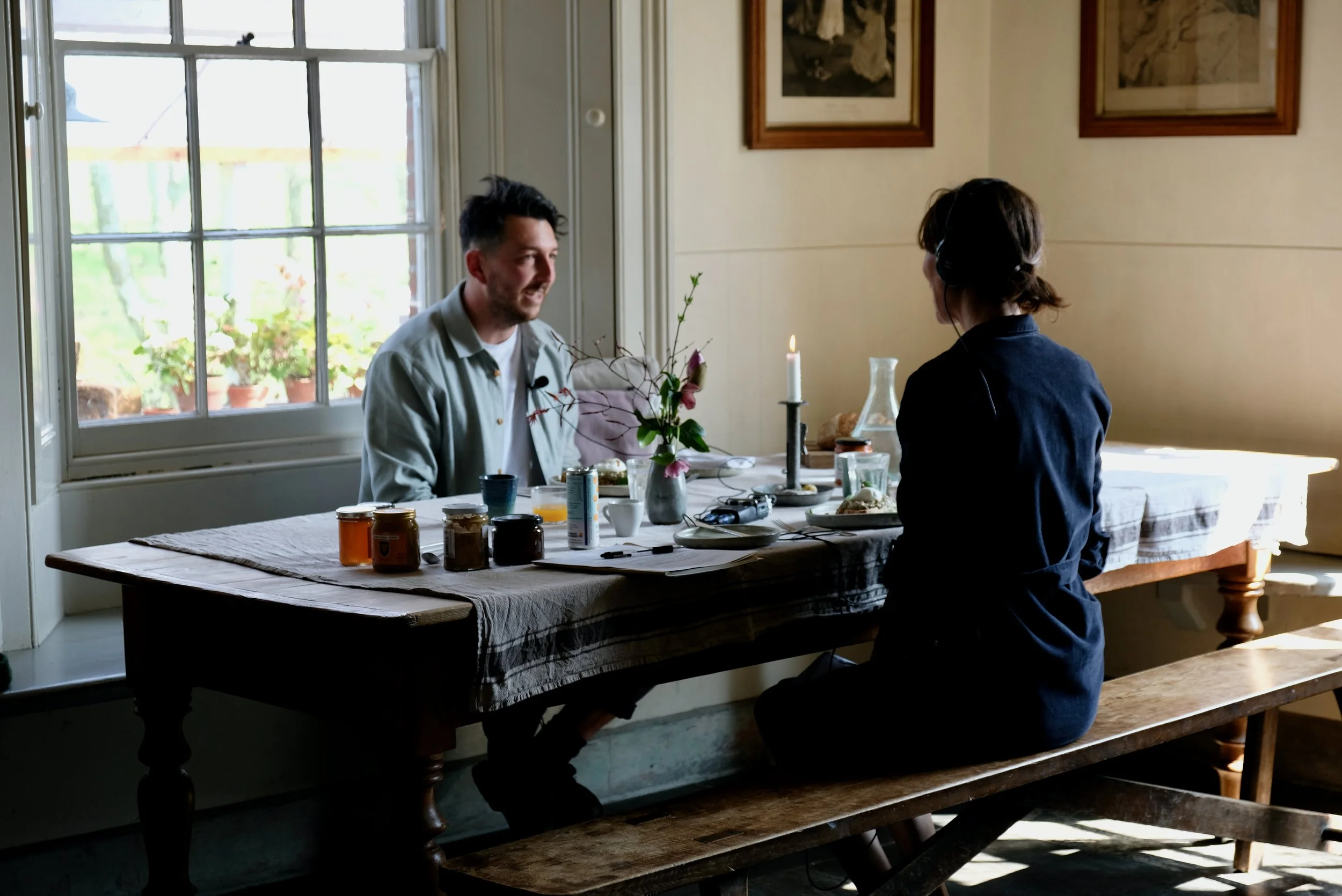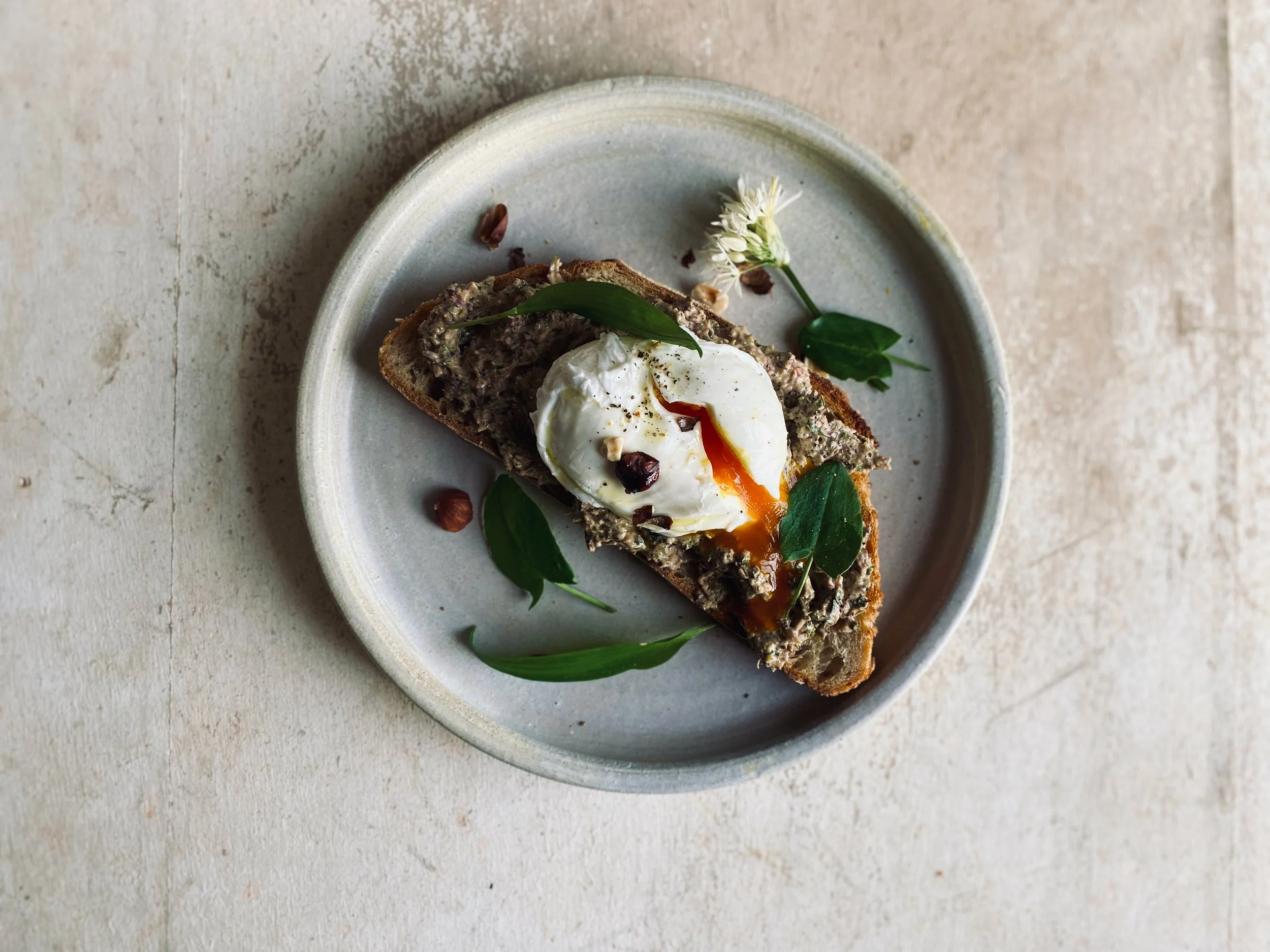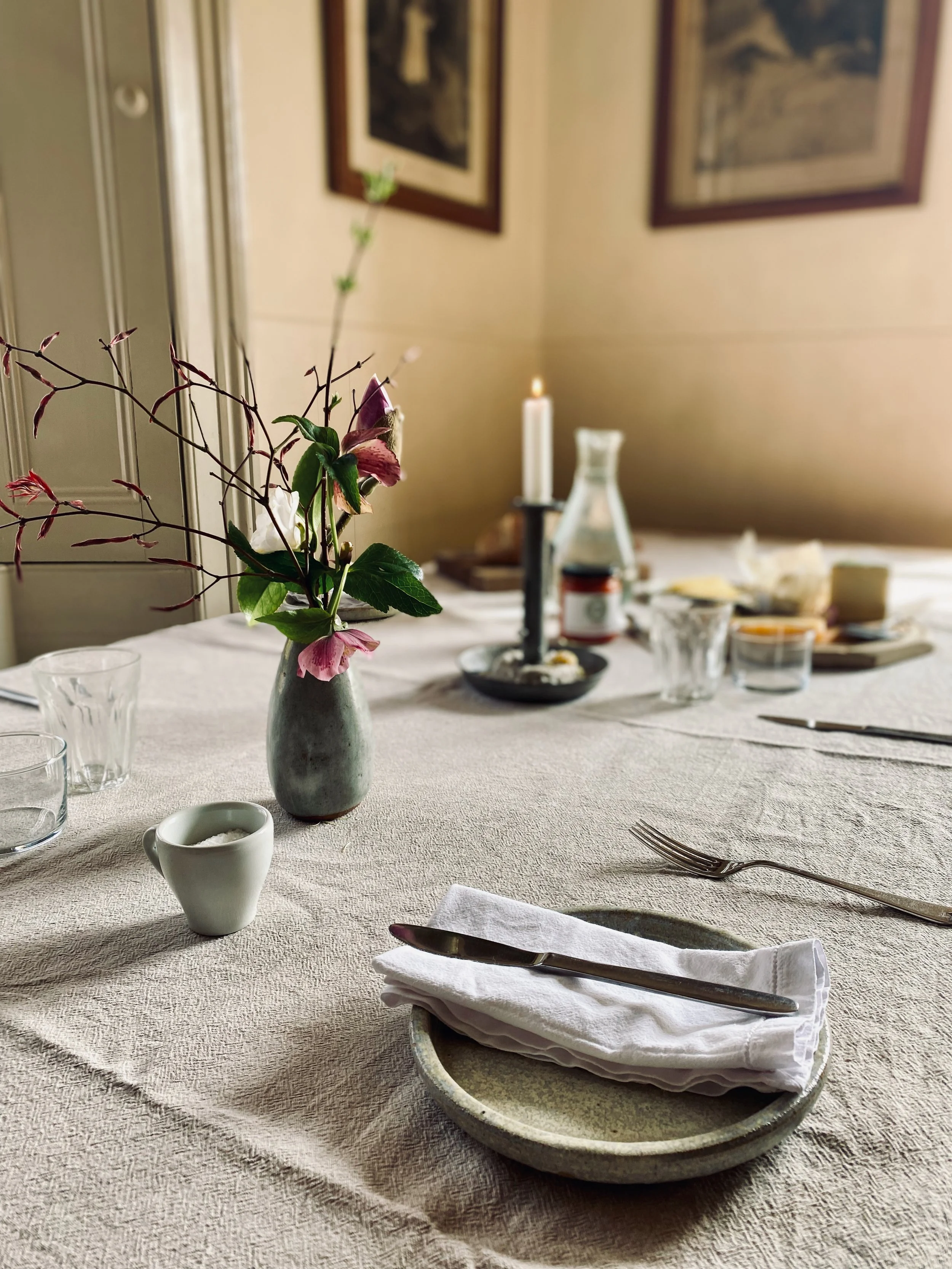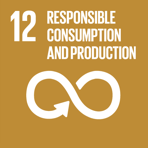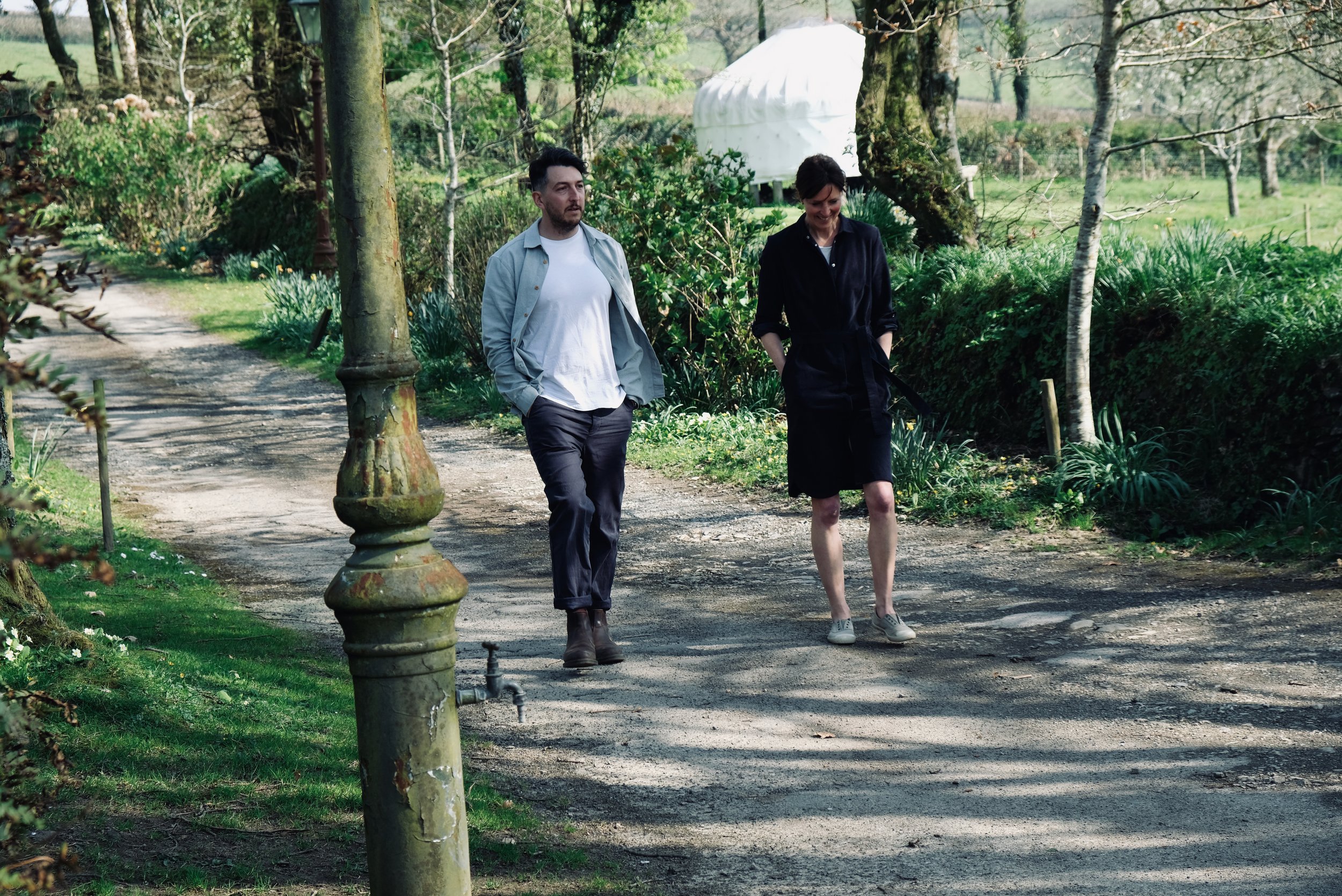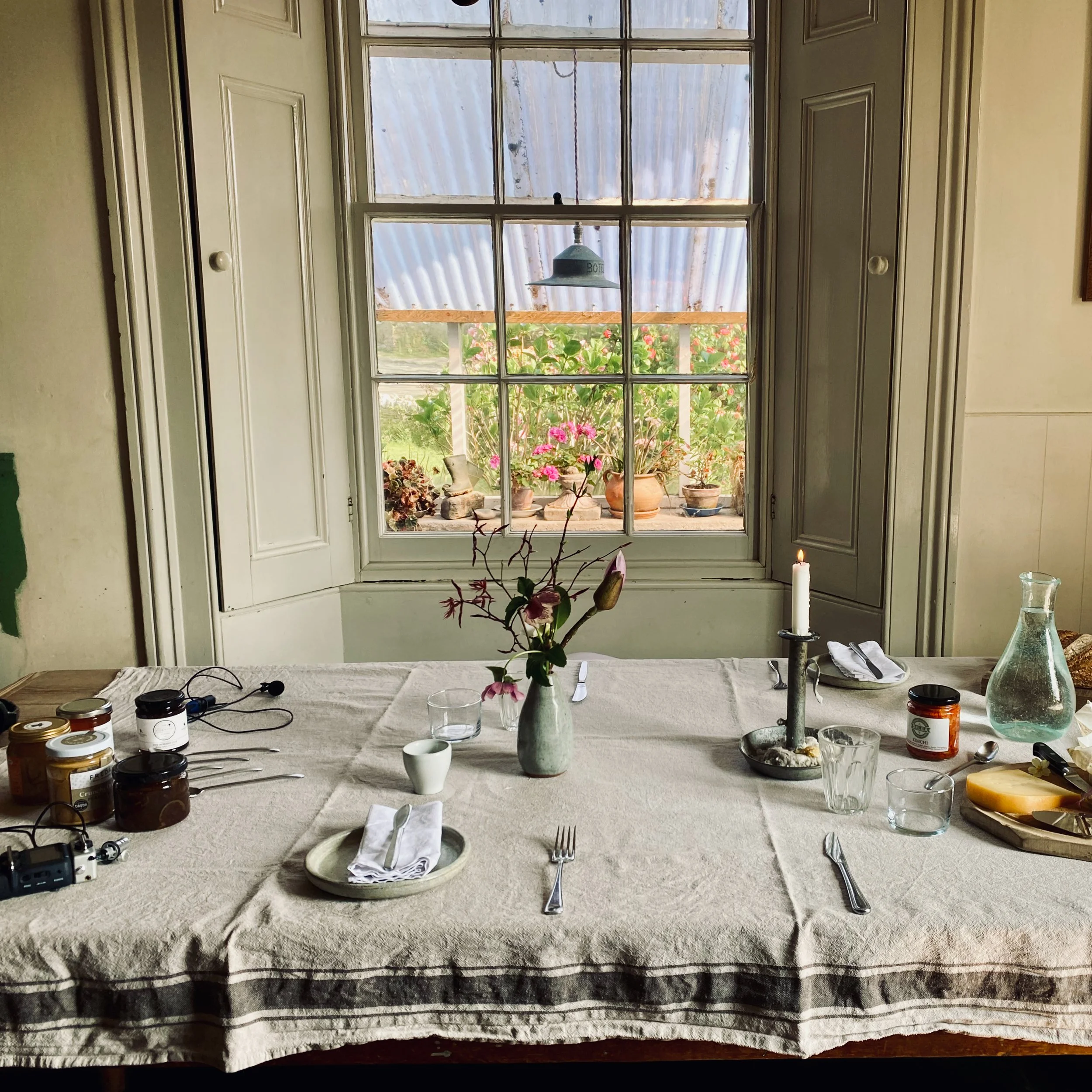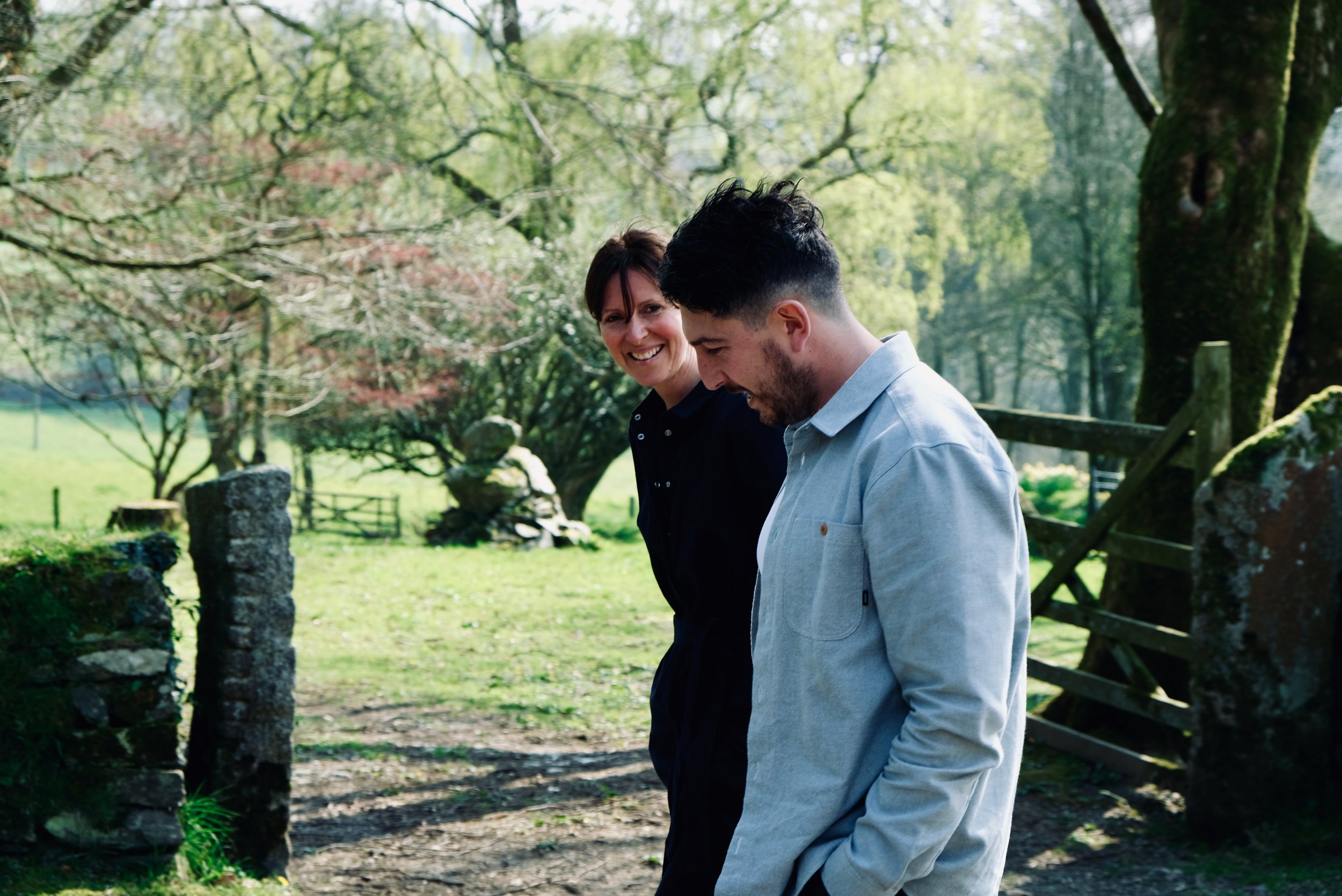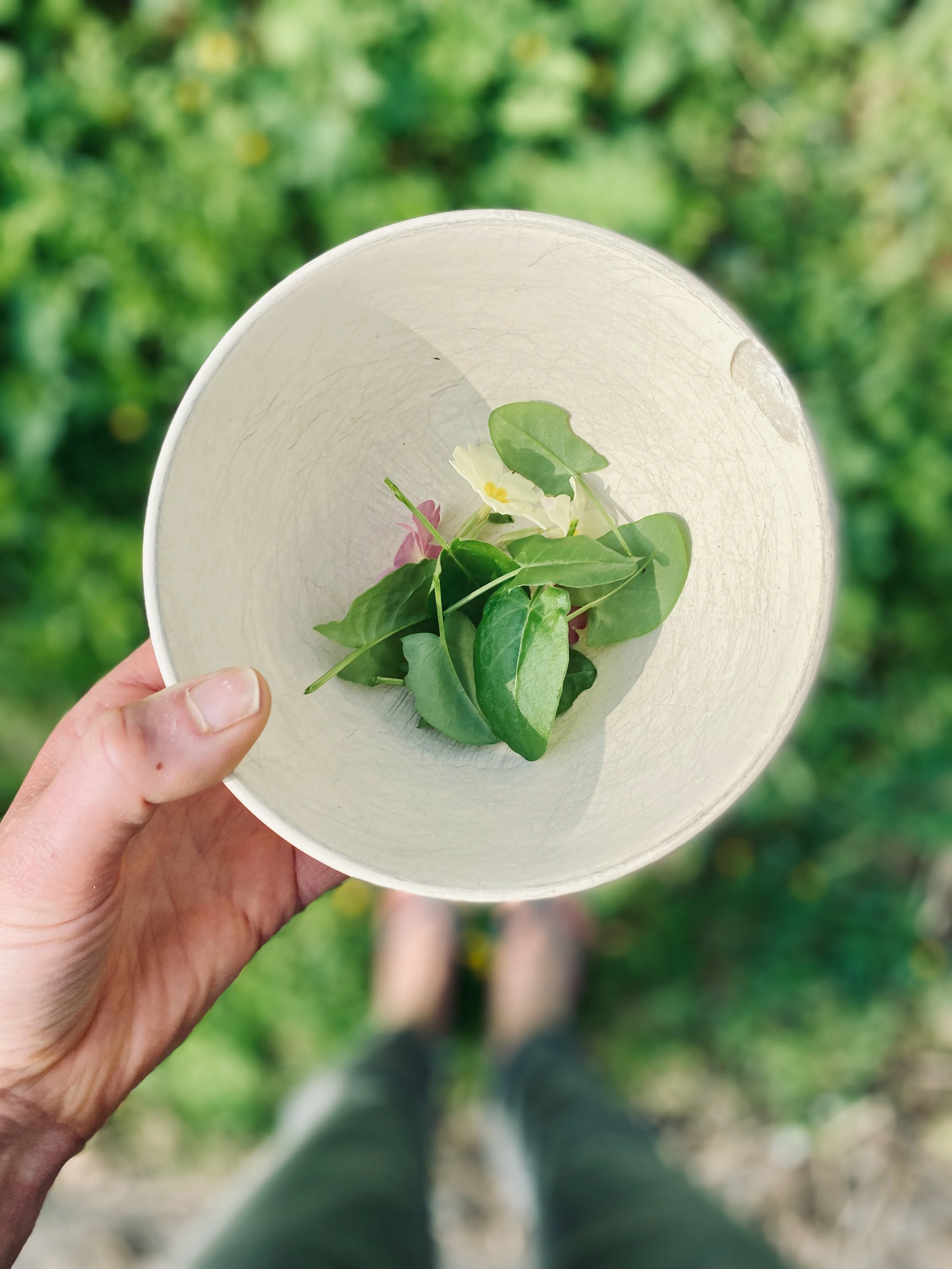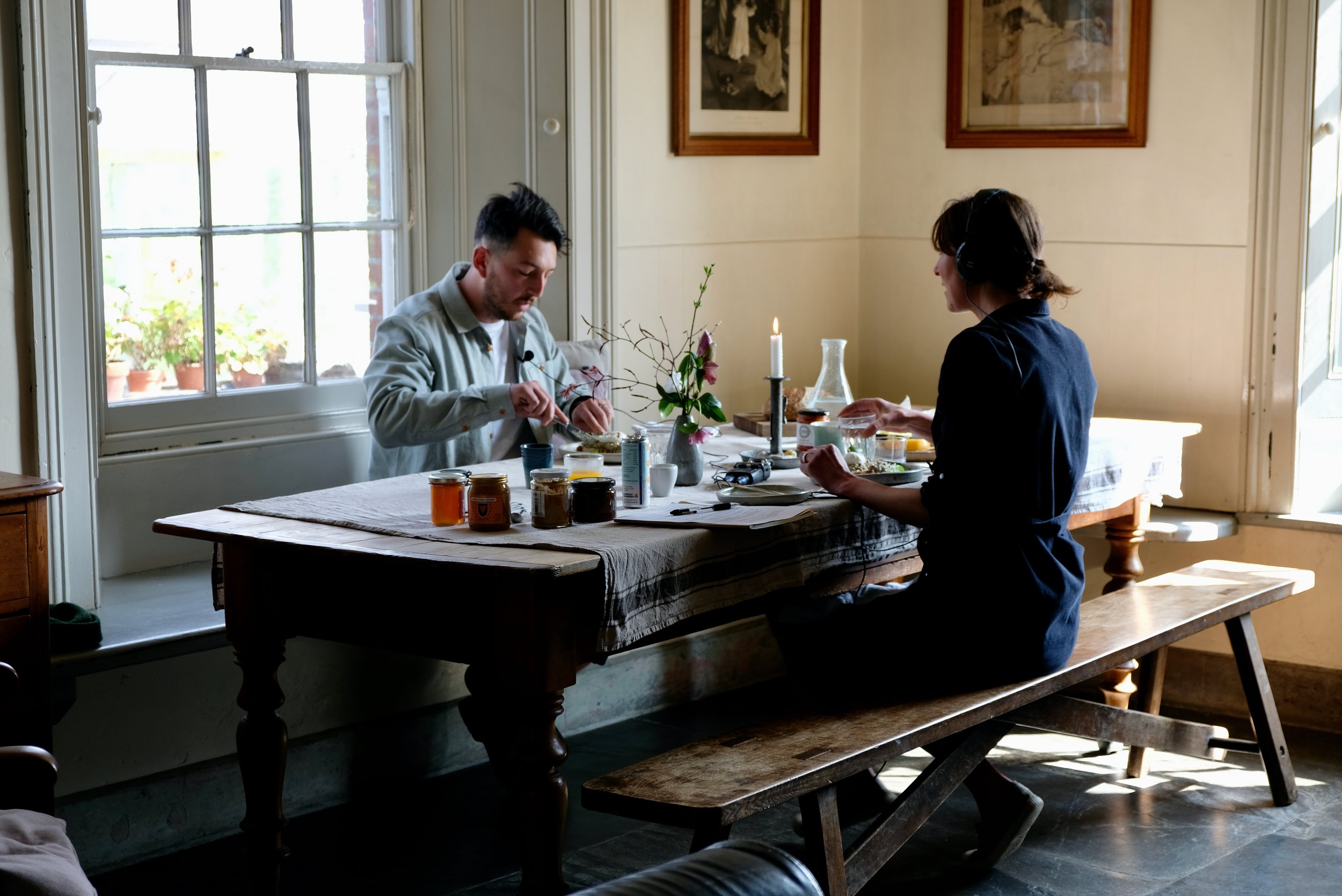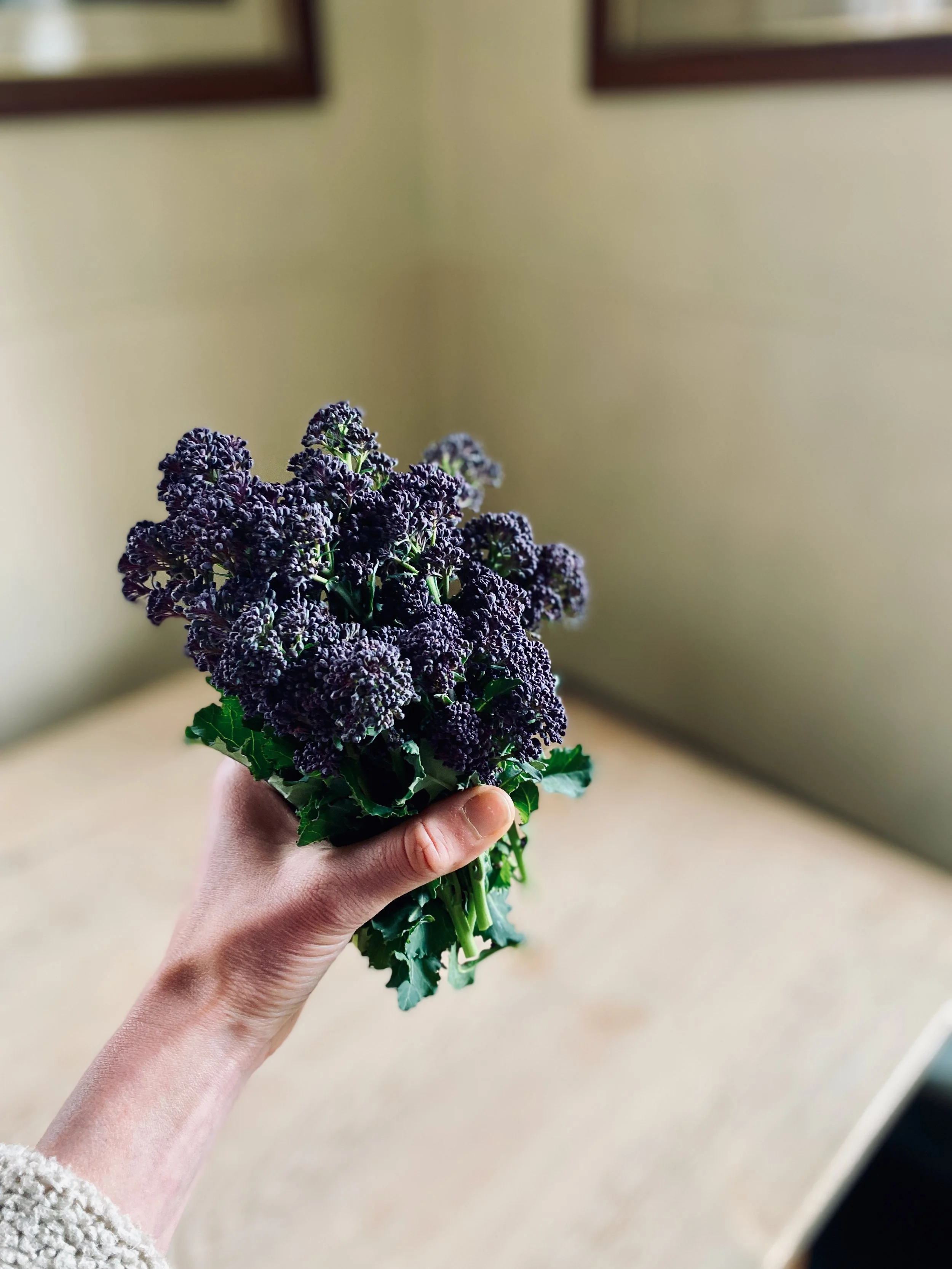Breakfast & Beyond - Episode 13:
with Jeffrey Robinson of The New Yard Restaurant
Jeffrey Robinson of The New Yard Restaurant and Pantry is my guest for Episode 13. Jeff and his wife Caroline took on management of The New Yard Restaurant just over two years ago, seeking to create an exceptional dining experience founded on principles of sustainability. In 2021, they were awarded a Michelin Green Star; a coveted accolade that recognises gastronomy and sustainability within the restaurant industry.
So .. when planning for this conversation with Jeff, I was expecting to delve into all things green cooking and eating, exploring the principles and practices that underlie the way they operate. But what I wasn’t necessarily expecting, was the emphasis that they give to social considerations alongside this – namely their staff and team of people who bring the restaurant to life – which, as you’ll hear, is absolutely front and centre, alongside their eco credentials. This is a conversation about people and planet .. and I hope you’ll enjoy it as much as I did.
“A restaurant should tell a story of its area … people have forgotten we are just part of nature and we have to start demanding less from the earth … it only took two generations to forget where our food came from - and it’s going to take two to get it back - but it needs to change quicker than that”
Do join us - tune in to Episode 13 of Breakfast & Beyond … via Apple Podcasts, Spotify, Stitcher & Tune-In
Breakfast: recipes, producers & growers …
I prepared a Cornish-style continental spread, the cooked dish was ‘Smashed Purple Sprouting Broccoli & Wild Garlic on Sourdough’ - inspired by veg garden and foraged ingredients that are available during the ‘hungry gap’, topped with one of my son Otto’s free range eggs. The table was also laid with locally baked bread, preserves and cheeses, details below …
Smashed purple sprouting & wild garlic with poached egg on sourdough (see recipe)
Cornish lemons sourced from Fruutbox
Wild garlic & sorrel sourced from the hedgerows here at Botelet
Sourdough and malted granary made by Vicky’s Bread sourced via Health & Happiness
Cheeses: Cornish Gouda, Yarg & Wenna sourced via Liskeard Hive
Delea Kimchi, sourced via Liskeard Hive
Milk from Green Cow Dairy
Butter from Trewithen Dairy
Tamar Valley honey, sourced via Green Cow Dairy
Home-made Lime marmalade
Quince jelly from Gathered Botanicals
Freda’s peanut butter, sourced via Colwith Farm Shop
VitaminSEA seaberry juice by Cornish Seaberry
Coffee by Lars & Margo
Sustainable living issue: sustainable eating
It is well documented that transforming our food systems is a critical part of addressing climate change and protecting biodiversity both on land and in the oceans. That change needs to take place from the way in which food is grown through to manufacturing processes, transportation, packaging along with how we buy, cook and eat. The restaurant industry plays a critical role, not only in terms of the quantity of food that is prepared and served within this context, but also influencing our home cooking habits.
The UK restaurant industry turnover in 2021 was £6.9 billion (Truly Experiences) suggesting the industry has the potential to play a significant role in shaping how food we eat is grown, along with choices around what we eat.
The global food system exerts enormous environmental pressures, accounting for around 30% of Green House Gas emissions, over 70% of freshwater withdrawals, and 40% of land use. It is also the principal driver of deforestation and biodiversity loss (UN Environment Programme)
The livestock industry generates nearly 15% of all man made greenhouse gas emissions (WWF) - so eating less meat as a proportion of our diet, and ensuring that the food we do eat (meat, fish and dairy as well as plant-based) is farmed regeneratively, can make a significant difference.
In the UK we produce around 9.5 million tonnes of food waste each year (WRAP)
Without protecting and regenerating the soil on our 4 billion acres of cultivated farmland, 8 billion acres of pastureland, and 10 billion acres of forest land, it will be impossible to feed the world, keep global warming below 2 degrees Celsius, or halt the loss of biodiversity. “Regenerative Agriculture” describes farming and grazing practices that, among other benefits, reverse climate change by rebuilding soil organic matter and restoring degraded soil biodiversity – resulting in both carbon drawdown and improving the water cycle (Regeneration International)
Transforming our food systems has the potential to create high impact in terms of reducing climate change (Breaking Boundaries: The Science of our Planet)
Reducing food waste has been posited as the top priority action we can take as individuals to reduce climate change, in terms of being immediate and impactful. “By fighting food waste, we can shrink the global demand for food, using fewer resources, clearing less land, and reducing overall emissions. The impact of this would be so significant, that Project Drawdown has labelled ‘reducing food waste’ as the number one thing individuals can do to fight climate change.” (Too Good To Go)
Words to action: what can we do?
In terms of eating out: Jeff recommends asking about the seasonality and locality of the produce being offered on menus. Be curious, research before you book; if you can, prioritise eating in places that prioritise sustainability (eg in relation to sourcing produce, waste and people). By showing you are interested in these issues and supporting businesses that have a ‘people and planet’ agenda, in a small way we support the shift towards a more sustainable restaurant industry and create a demand for quality.
For cooking and eating at home:
Where possible, source food locally, organically / regeneratively grown or farmed. This supports businesses who are prioritising the environment (increasing biodiversity, reducing climate change, prioritising ocean and land health).
Get to know your local suppliers and learn what’s in season and when.
Consider reducing the amount of meat within your diet.
If you have access to outdoor space nearby, consider what is available to forage at different times of year (bearing in mind sustainable foraging guidelines).
Try to reduce waste (in terms of what you cook, and using up afterwards).
Compost scrap food if possible - either creating a home compost, or check if your local Council has facilities.
Opt for plastic-free packaging where possible.
Get kids involved with cooking from scratch - so they understand where food comes from and how to have fun creating delicious food.
Affordability and accessibility intersect with sustainability. Do what you can, and remember: ‘We don’t need a handful of people doing sustainablity perfectly. We need millions of people doing it imperfectly’.
Look out for campaigns and initiatives around sustainable eating that you can get involved with; for example the ‘Too Good To Go’ waste food app - offering ‘Magic Bags’ of reduced cost food at the end of the day when they are no longer able to be sold; Greenpeace are doing a ‘Big Plastic Count’ from 16th to 22nd May 2022 which is a chance to audit how much plastic is coming into your home; XXXXX
Contact companies and organisations about the issue of sustainable eating, letting them know the changes you would like to see them make, as a consumer.
Consider writing to your MP about issues such as supporting organic / regenerative farming, plastic free food and reducing waste - contact your MP setting out your concerns, and actions you would like to see happen.
Remember: small individual steps do, collectively, make a difference. Talk about the issue of sustainable eating with those around you. We are all influencers within our own social networks, from our personal relationships to within the institutions we connect with such as work place, healthcare and education settings.
Resources & links from our conversation…
New Yard growers, producers and suppliers:
Trenow Fields · Treleague Dairy · Trink Dairy · Kernow Sashimi · Gear Farm · Cornish Seaberry · Wild Farmed
Local eateries:
Argoe - Newlyn restaurant specialising in local fish & seafood · Little Palais, St Ives - recommended for great cocktails · The Honey Pot Café, Penzance
Jeff references ‘The Impossible Bouquet’ by 18th century Dutch artist Jan van Huysum - likening the impossibility of the florals van Huysum painted alongside each other which could never have been seen together growing in a garden, to the contemporary availability of fruits and vegetables year-round from across the globe that don’t come into season at the same time and wouldn’t therefore be found growing alongside each other
Sustainable Development Goals
The UN’s Sustainable Development Goals (SDGs) are 17 targets representing a universal call to action to end poverty, protect the planet and ensure that all people enjoy peace and prosperity by 2030. ‘Everyone is needed to reach these ambitious targets. The creativity, knowhow, technology and financial resources from all of society is necessary to achieve the SDGs in every context’ (UNDP). Translating these global objectives to tease out their relevance at the individual and small-organisational scale can inspire us to connect with these important global themes and consider what we are doing - and what more we can do - to make a contribution that supports our own work and wellbeing along with benefiting other people and the planet.
In Episode 13 our discussion referenced the following Sustainable Development Goals:
3 - Good Health & Wellbeing - eating good food that is grown well is not only better for the environment, but can also positively impact our own health and wellbeing, including our mental health.
8 - Decent Work and Economic Growth - creating employment for The New Yard staff that is based on year-round work with reasonable hours and pay is crucial for Jeff and Caroline. They are also concerned to make a positive contribution to the growers, producers and suppliers whom they source from in terms of their work and economic sustainability of their local businesses.
12 - Responsible Consumption & Production - Jeff poses the question “What does cheap food mean?” recognising that someone along the food chain pays the price for food - bought in restaurants or for home cooking - for which the price has been unrealistically cut. The New Yard Restaurant is run on a model of responsible consumption and production, ensuring that everyone from growers and producers to the team that cook and serve the food are paid and treated fairly.
14 - Life Below Water - by working with local suppliers who fish sustainably, The New Yard Restaurant contributes to protecting life below water. Additionally, by sourcing land-based produce (plants and animal products) from organic, regeneratively grown sources, this helps to protect waterways from being polluted, which in turn contributes to a healthy ocean ecosystem.
15 - Life on Land - by sourcing plant and animal based products from the local area, either grown in walled garden at Trelowarren or sourced through local suppliers who prioritise organic, regenerative techniques, The New Yard approach supports life on land for example taking chemicals out of the food production system, promoting biodiversity and not putting unsustainable pressure on the land.
Podcast recording: behind the scenes …
Thank you for listening!
Thank you for listening to Breakfast & Beyond: Conversations from Cornwall on Sustainable Living. If you enjoyed listening I’d love it if you could subscribe to the podcast, rate it, and share episodes with friends and family who would enjoy them. You can listen and subscribe via Apple Podcasts, Spotify, Tune-In or wherever you find your podcasts.
I’d love to know your thoughts - please join the conversation and get in touch by email tia@botelet.com or instagram. Thank you and I look forward to sharing next month’s episode with you.
The Breakfast & Beyond podcast is hosted at our home Botelet Farm in South East Cornwall, where my husband’s family have lived and farmed for over 150 years, and three generations still share the farmhouse today. Set in a peaceful valley upstream of Fowey, we welcome visitors to stay in historic cottages, and there’s a yurt for those who love to immerse themselves in nature.
